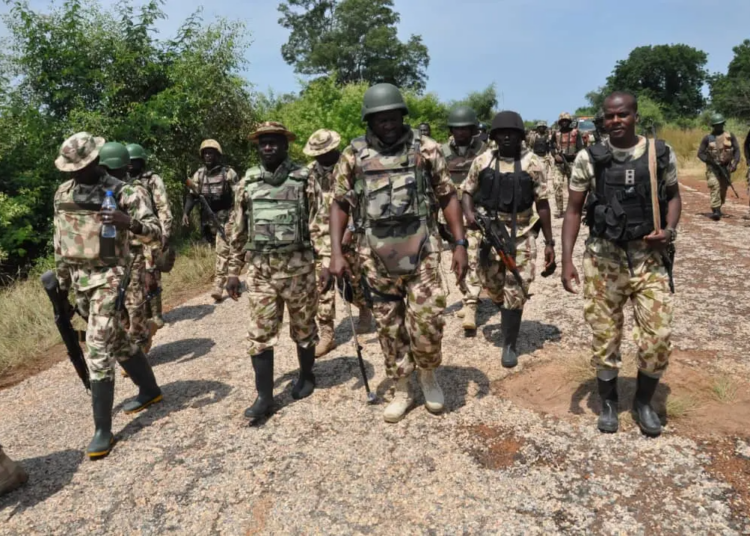According to a Beacon Security and Intelligence Limited (BSIL) report, the North East and North West recorded the most security incidents in December 2024.
These affected 258 local government areas in 36 states, including the Federal Capital Territory, Abuja.
The report signed by the Managing Director of Beacon Security and Intelligence Limited, Kabir Adamu, said 674 incidents occurred that resulted in 671 abducted persons and 708 fatalities.
“From December 01–31, 2024, Nigeria recorded 674 security incidents, of which 56.53% (381) were attributed to security threats, 26.85% (181) consisted of security forces operations, and 16.62% (112) were attributed to safety incidents. These incidents resulted in 708 fatalities, with 81.36% attributed to civilian deaths, 15.54% to criminals/NSAGs, and 3.11% attributed to security forces.
The incidents also resulted in 671 abducted persons.
A comparative analysis of November 2024 and December 2024 shows shifts in several metrics, similar to the now-established invariable pattern of month-to-month fluctuation in Nigeria’s security landscape. In November 2024, Nigeria recorded a total of 685 security incidents, which declined by 1.60% (674) in December 2024.
In the reporting month, the North East and North West regions were the most affected by security incidents, accounting for 51.19% of the total incidents. Furthermore, the South East reported the fewest incidents at 7.86%.
The number of individuals killed in December 2024 declined to 708 from 951 in November 2024, indicating a decrease of 25.55%. The variations for the North West (31.92%) and North Central (20.76%) regions had the highest cumulative numbers, accounting for 52.68% of total fatalities. The South East had the lowest fatality rates, at 7.86%. Northern Nigeria accounted for (472) 66.67% of the total fatalities, while Southern Nigeria accounted for (236) 33.34%.
“The number of individuals abducted in December 2024 decreased to 671 from 786 in November 2024, marking a 14.63% decline. The North West was the hardest hit, with 72.13% of all abducted persons across the region. The South-South region experienced the least abducted persons, with 0.72%. Of the total number of abducted individuals, Northern Nigeria accounted for 642 (95.78%), while Southern Nigeria accounted for 29 (4.32%),”
Beacon called for a stratified counterterrorism strategy that balances kinetic and non-kinetic approaches, such as leveraging military action, while addressing the root causes of insecurity, particularly governance gaps and socio-economic vulnerabilities.
The security firm also advocated for synergy between the federal and subnational governments and secured the people’s vital buy-in for lasting peace.
“Accountability in security governance also remains a pressing issue. As shown in Beacon Security and Intelligence Limited’s Nigeria Security Report, December 2024, our analytical tools flagged the risk of this resurgence long before it unfolded.
“We reached out to key coordinating elements within the security sector, but regrettably, no action was taken. Today, the consequences of that inaction are measured in lives lost,” the report said.
The report called on President Bola Ahmed Tinubu and the leadership of the National Assembly to prioritise accountability within public security governance.
“Nigeria cannot afford to overlook lapses that endanger lives, nor can we continue to ignore the voices advocating for proactive and evidence-based security measures,” it said.
According to the report, security incidents declined marginally by 1.6% in December compared to November, with the North West and North East regions remaining the most affected in 2024.
The report added that the fatalities also decreased by 25.55%, while abducted persons dropped by 14.63%.
“Despite these reductions, systemic vulnerabilities persisted, with non-state actors, armed groups (NSAGs) and criminal groups continuing to exploit governance gaps,” the report stated.
The report said security operations achieved key successes against NSAGs, kidnappers, and oil theft syndicates.
Citing the Multi-Agency Anti-Kidnap Fusion Cell report, there was an 80% reduction in kidnappings, and military actions led to the neutralisation of 212 terrorists and the rescue of 152 kidnapped victims.
The report said despite these achievements, the continued prevalence of banditry, sabotage of critical infrastructure, and collateral damage from military operations underscored the need for a more comprehensive approach to addressing security challenges.
The report added, “Despite these acclaimed successes, NSAGs adopted the use of improvised explosive devices in new locations in the North West and drones in the North East, posing additional challenges to public security and the counterterrorism and anti-banditry measures by government security forces,”.





